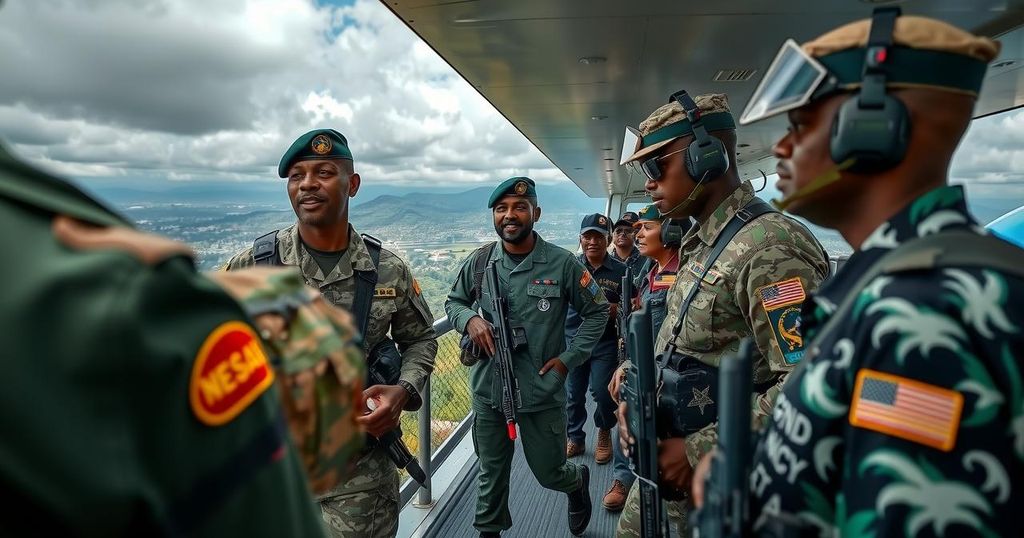Russia has sent 200 military instructors to Equatorial Guinea to bolster the security of President Teodoro Obiang Nguema Mbasogo and his family. This move underscores Russia’s expanding influence in West Africa, particularly in oil-rich nations, as the country navigates its own strategic interests amid allegations of financial wrongdoing involving the president’s son.
Russia has deployed a contingent of 200 military instructors to Equatorial Guinea, a strategic move aimed at enhancing the security of President Teodoro Obiang Nguema Mbasogo. This increase in Russian military presence underscores Moscow’s growing influence in West Africa, particularly in oil-rich nations. According to reports from Reuters, these instructors have commenced training local security forces in the nation’s principal urban centers. Their primary function includes ensuring the safety of the president’s son, who is currently positioned as vice president and is being groomed for succession, while also facing serious allegations of financial misconduct internationally.
Equatorial Guinea, ruled by President Obiang since 1979, is one of Africa’s leading oil exporters, drawing significant foreign investment, especially from American firms. However, the recent influx of Russian military instructors coincides with notable shifts in international investment strategies, possibly linked to the political stability sought by the current administration. As President Obiang prepares his son for leadership, the involvement of Russian security elements highlights both a protective measure for the ruling family and a broader strategic interest held by Russia in maintaining a foothold in Western Africa.
In conclusion, Russia’s recent military deployment to Equatorial Guinea represents a significant deepening of bilateral ties and a commitment to protecting the political interests of the Obiang regime. With President Obiang’s focus on succession and the increasing scrutiny of his administration’s financial dealings, this move by Russia sets the stage for a more pronounced influence in the region’s geopolitical landscape, with implications for local governance and international relations.
Original Source: 112.ua






